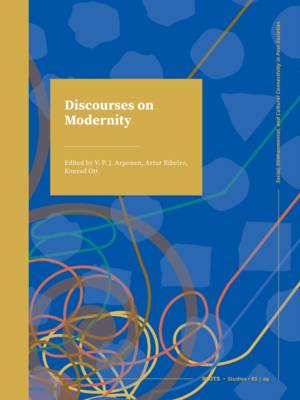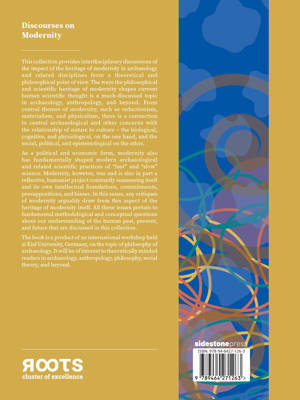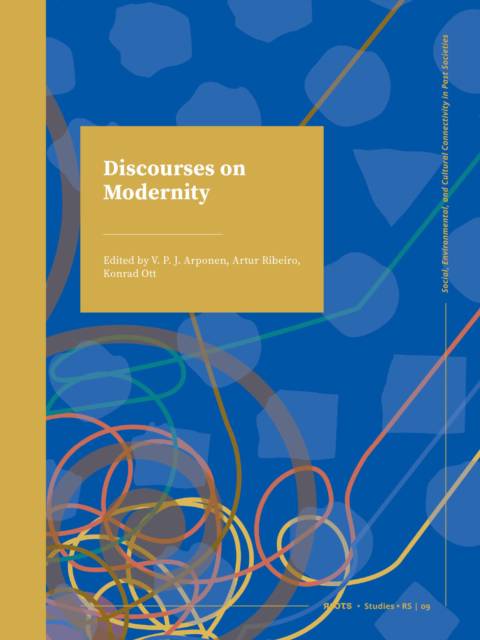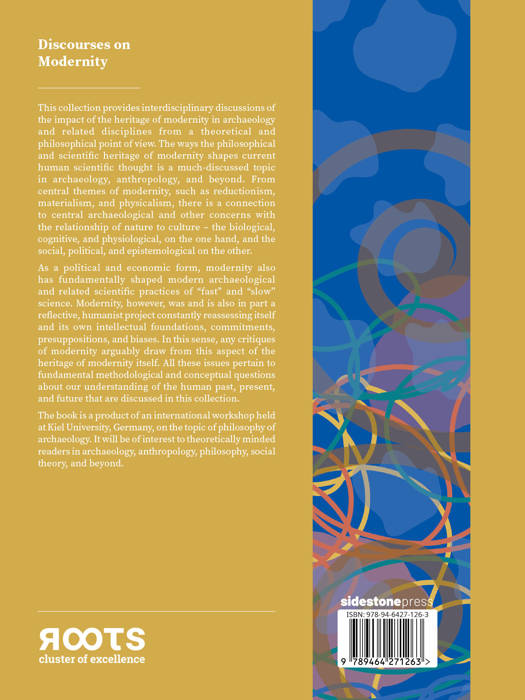
Je cadeautjes zeker op tijd in huis hebben voor de feestdagen? Kom langs in onze winkels en vind het perfecte geschenk!
- Afhalen na 1 uur in een winkel met voorraad
- Gratis thuislevering in België vanaf € 30
- Ruim aanbod met 7 miljoen producten
Je cadeautjes zeker op tijd in huis hebben voor de feestdagen? Kom langs in onze winkels en vind het perfecte geschenk!
- Afhalen na 1 uur in een winkel met voorraad
- Gratis thuislevering in België vanaf € 30
- Ruim aanbod met 7 miljoen producten
Zoeken


€ 30,00
+ 60 punten
Uitvoering
Omschrijving
This collection provides interdisciplinary discussions of the impact of the heritage of modernity in archaeology and related disciplines from a theoretical and philosophical point of view. The ways the philosophical and scientific heritage of modernity shapes current human scientific thought is a much-discussed topic in archaeology, anthropology, and beyond. From central themes of modernity, such as reductionism, materialism, and physicalism, there is a connection to central archaeological and other concerns with the relationship of nature to culture - the biological, cognitive, and physiological, on the one hand, and the social, political, and epistemological on the other.
As a political and economic form, modernity also has fundamentally shaped modern archaeological and related scientific practices of "fast" and "slow" science. Modernity, however, was and is also in part a reflective, humanist project constantly reassessing itself and its own intellectual foundations, commitments, presuppositions, and biases. In this sense, any critiques of modernity arguably draw from this aspect of the heritage of modernity itself. All these issues pertain to fundamental methodological and conceptual questions about our understanding of the human past, present, and future that are discussed in this collection.
The book is a product of an international workshop held at Kiel University, Germany, on the topic of philosophy of archaeology. It will be of interest to theoretically minded readers in archaeology, anthropology, philosophy, social theory, and beyond.
As a political and economic form, modernity also has fundamentally shaped modern archaeological and related scientific practices of "fast" and "slow" science. Modernity, however, was and is also in part a reflective, humanist project constantly reassessing itself and its own intellectual foundations, commitments, presuppositions, and biases. In this sense, any critiques of modernity arguably draw from this aspect of the heritage of modernity itself. All these issues pertain to fundamental methodological and conceptual questions about our understanding of the human past, present, and future that are discussed in this collection.
The book is a product of an international workshop held at Kiel University, Germany, on the topic of philosophy of archaeology. It will be of interest to theoretically minded readers in archaeology, anthropology, philosophy, social theory, and beyond.
Specificaties
Betrokkenen
- Auteur(s):
- Uitgeverij:
Inhoud
- Aantal bladzijden:
- 160
- Taal:
- Engels
- Reeks:
Eigenschappen
- Productcode (EAN):
- 9789464271263
- Verschijningsdatum:
- 31/12/2025
- Uitvoering:
- Paperback
- Formaat:
- Trade paperback (VS)
- Afmetingen:
- 210 mm x 279 mm

Alleen bij Standaard Boekhandel
+ 60 punten op je klantenkaart van Standaard Boekhandel
Beoordelingen
We publiceren alleen reviews die voldoen aan de voorwaarden voor reviews. Bekijk onze voorwaarden voor reviews.










